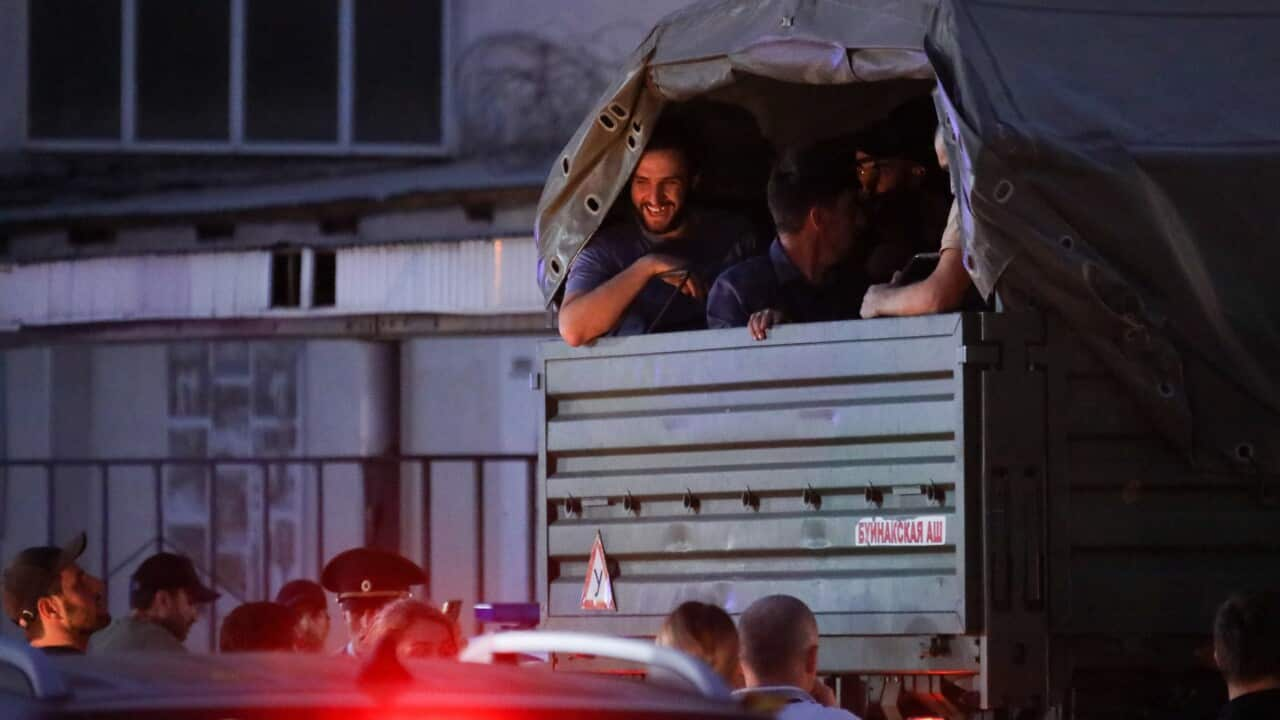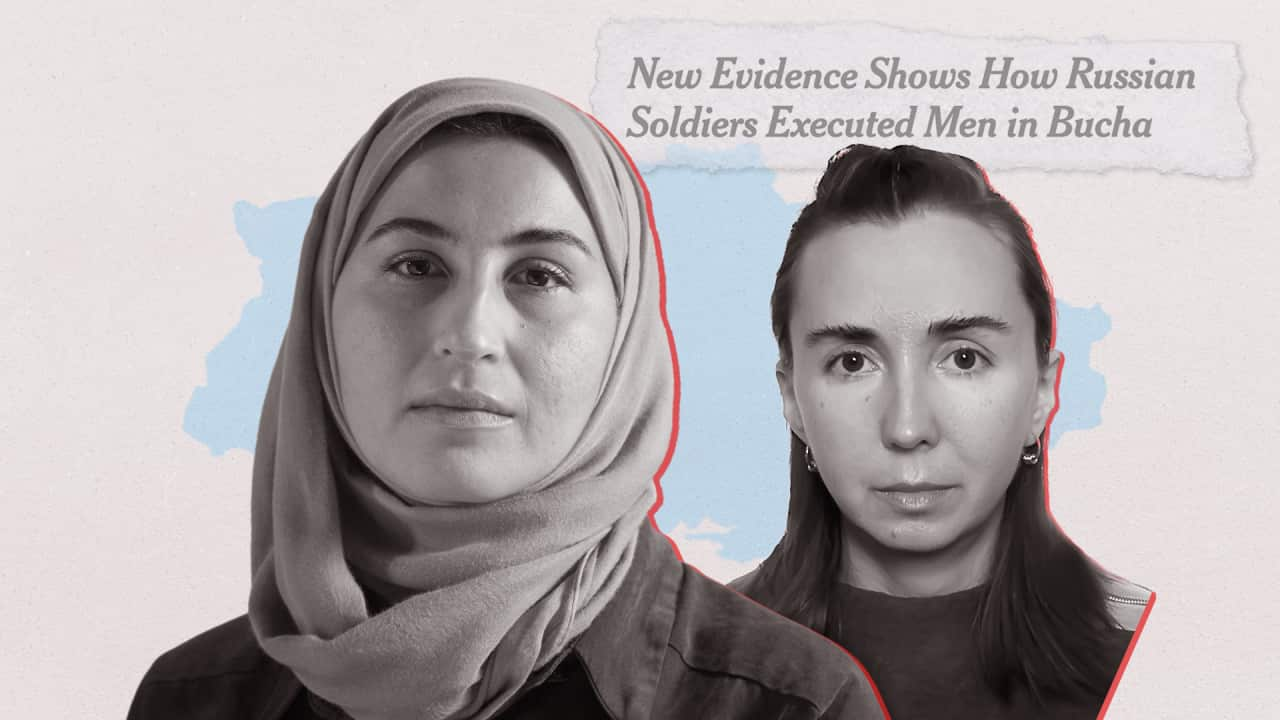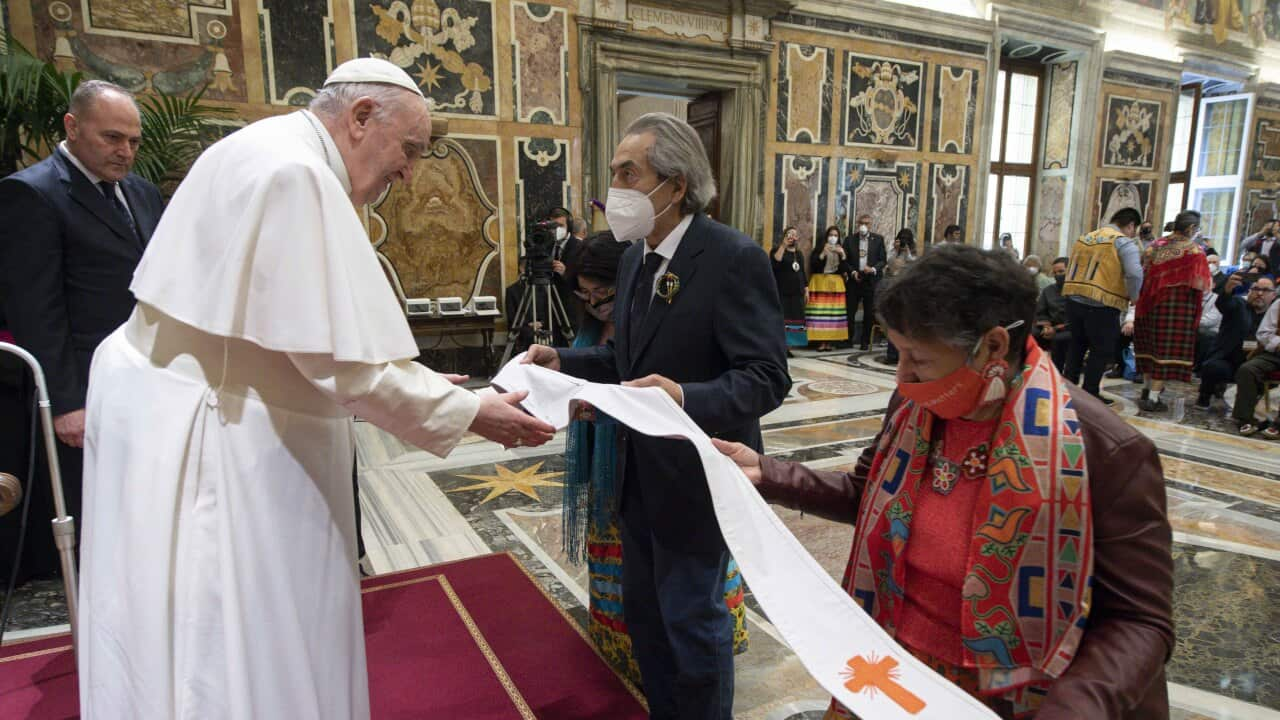From her home in San Francisco, Viktoria Maladaeva watched with unease as the country of her birth, Russia, invaded Ukraine.
Her native region, Buryatia, is a small Siberian republic located far from the fighting, near the Mongolian border. But like other poor, ethnic minority regions in Russia, Buryatia would soon send disproportionate numbers of men to war.
So Maladaeva joined with other ethnic Buryats to start the Free Buryatia Foundation. Her activities would soon prompt a radical rethink about Russia’s colonial history, and where people like her fit in it.
Set up at first to rally against the war, the group also helped men avoid the draft and counted casualties, which the authorities kept secret. Last month, Russia’s government declared the foundation an “undesirable organisation,” making it a crime to carry out its activities in the country.
“We knew we couldn’t stop the war but at least we could help our fellow countrymen not participate in it. We found loopholes in the law to break the contact with the army,” Maladaeva told SBS Dateline.
Nearly 78 per cent of Russia’s 144 million population are ethnic Russians. But the country is also home to 193 ethnic groups that speak about 270 languages and dialects.

In September 2022, six months into the war, the Kremlin . Buryatia and several other poor ethnic minority regions took the hardest hit. Maladaeva says the men were drafted without call-up notices and medical examinations.
The Free Buryatia Foundation helped some 450 draft-eligible Buryat men to flee to Mongolia.
“In one small village, they called up a young man, the only vet in the area, and a father of five children. Both men hadn’t even received a call-up notice by the time they were woken up at night and taken to the military base,” she recalls. “I tried to convince their relatives to fight back for them. Unfortunately, they didn’t take any action, and six months later, I read the obituaries.”
There are no official figures on Russian losses in Ukraine. Independent journalists , but many more are believed to have been killed. Buryatia is among the regions that have seen the highest proportion of casualties.
Reclaiming identity
Maladaeva says that the draft targeting ethnic minorities reflected the widespread discrimination faced by non-Slavic people in Russia, which she experienced herself.
When she and her mother moved from Buryatia to St. Petersburg, Russia's second-largest city, they were often mistaken for migrants from Central Asia.

Diasporas from Russia's Siberian republics protested outside of the Russian embassy in London against the war in Ukraine in October 2022. Source: LightRocket / Thomas Krych/SOPA Images/Light Rocket via Getty Images
Maladaeva recently started a new non-profit to talk about racism, discrimination, and the rights of minorities in Russia. As an ethnic Buryat, she also wants to educate people about Russia’s history of imperial conquest and its treatment of indigenous people.
Buryats are one of the largest ethnic groups native to Siberia who were colonised by the Russian Empire in the mid-17th century. Besides them, there are more than 40 other indigenous groups in Siberia and the Far East, most of which have populations of fewer than 50,000 people. Their languages are at risk of disappearing due to the dominance of the Russian language.
Maladaeva says she’s going through the process of ‘decolonising her mind’ by learning the history of her people and promoting the Buryat language, which has been designated as an endangered language by UNESCO. While it is still spoken by older generations, young people and children use Russian as their primary language.
“I resent the fact I have to learn these things now, at 34. We weren’t taught them in school,” she said. “I want my people and other indigenous peoples to wake up and have agency, and seek historical truth and determine their future.”

Russian anti-war activist Viktoria Maladaeva co-founded Indigenous of Russia, a non-profit advocating for the rights of ethnic minorities and indigenous people living in Russia. In the photo, she's wearing a traditional-style outfit of the Buryat people, who are native to Siberia. Source: Supplied / Instagram/ @maladaeva
Originally from Tuva, Russia’s poorest region next to Buryatia, she moved to the capital, Moscow, to study and was confronted with negative stereotypes about Tuvans and racial discrimination. She says she felt like a second-class citizen.
“There were a lot of pain and hard feelings. That’s why I wanted to create a product that would humanise us and give our agency back to us,” Khovalyg told SBS Dateline. “A podcast about our ancient cultures. Not for ethnic Russians but for ourselves.”
After the start of the invasion, she moved to Berlin. Anti-war activism brought her together with other Asian Russians who shared a lot of similar experiences.
She launched a podcast, Republic Speaking, that features interviews with Asian people of Russia about their history, languages, and traditions. While it's not outwardly political, the underlying goal is to revive the national identities suppressed by Russian assimilation policies.
Decolonising Russia
Maladaeva and Khovalyg are part of a small but vocal 'decolonisation' movement that emerged in Russia in the wake of its invasion of Ukraine. The movement has sparked a critical discussion about the negative impact of Russia’s colonial legacies on indigenous peoples and the systemic discrimination that persists against ethnic minorities - a conversation that many ethnic Russians aren’t comfortable having.
“Acknowledging a colonial past and working on rectifying it requires strength and courage. European countries and Canada are on a path to it,” Maladaeva said.
Russian President Vladimir Putin has repeatedly denounced the West for its colonial crimes in the Americas, Asia, and Africa. But when it comes to its own history of imperial expansion, the official Russian narrative often emphasises its positive aspects such as spreading education and building infrastructure.
While Putin claims the attack on Ukraine was necessary to "protect" Russian speakers there, his own government has limited the teaching of minority languages and persecuted ethnic-minority activists.
Aihal Ammosov, a musician from Sakha (Yakutia), in Russia’s Far East, is awaiting extradition to Russia from Kazakhstan, where he fled to avoid prosecution for his criticism of the invasion of Ukraine. Before the war, he gained local fame for writing songs and poems in the Yakut language about indigenous rights, environmental issues, and corruption in his native region.
Sakha, an Arctic region larger than Western Australia and home to a million people, is the epicentre of Russia’s oil and gas extraction, as well as timber, gold and diamond mining sectors. But in a top-down Russian economy, the federal government in Moscow collects all revenues from resource exports and then redistributes part of those funds in the form of subsidies to regions.
Khovalyg says the Russian government is reluctant to admit its colonial past because it would also mean accepting Russia’s economic exploitation of indigenous people’s lands.
Both activists say their regions should eventually gain greater political and economic autonomy. But before it can happen, ethnic minorities should first ‘decolonise their minds’ and take active ownership of their lives and regions.
“It starts with studying your national history, showing interest in your own languages, and recognising your own rights,” Khovalyg says.













